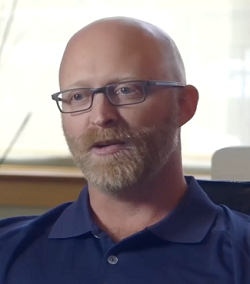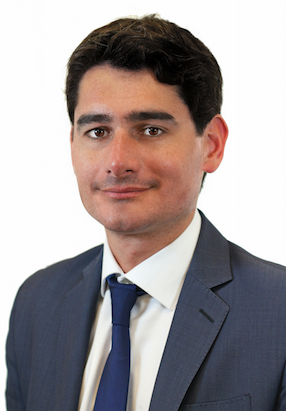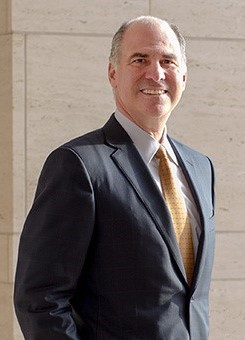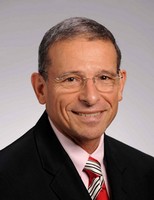Transcripts
 Erik: Joining me now is former hedge fund manager turned Felder Report publisher Jesse Felder. Jesse, it's great to have you back on the program. On the day that we are speaking, the global pandemic appears in some ways to be worsening across Europe with case counts on the rise, although we don't yet have death counts on the rise across Europe, a lot of question marks as to whether that's coming. There are a number of experts that are warning that as we get into the fall colder weather in the Northern Hemisphere, we could be looking at a vicious second wave of the pandemic. Stocks, meanwhile, rallied to new all-time highs on the news, Jesse Felder, please explain.
Erik: Joining me now is former hedge fund manager turned Felder Report publisher Jesse Felder. Jesse, it's great to have you back on the program. On the day that we are speaking, the global pandemic appears in some ways to be worsening across Europe with case counts on the rise, although we don't yet have death counts on the rise across Europe, a lot of question marks as to whether that's coming. There are a number of experts that are warning that as we get into the fall colder weather in the Northern Hemisphere, we could be looking at a vicious second wave of the pandemic. Stocks, meanwhile, rallied to new all-time highs on the news, Jesse Felder, please explain.
Jesse: Well, it's absolutely astounding. I mean, you know, we talked I think last time you had me on the show, Eric, was February right before the decline began. And you and I were both were very bearish thought that that initial 10% decline was going to continue. And you know, I think even at the bottom in March, and a few weeks afterwards, nobody would have guessed that we would see the fastest and a lot of what people are calling ‘the shortest bear market in history’, which I tend to disagree.
 Erik: Joining me now is Vincent Deluard, global macro strategist for StoneX - that's formerly known as INTL FC Stone. StoneX, I guess is the new name of your firm. Vincent, it's great to have you on the program. Thanks for joining us.
Erik: Joining me now is Vincent Deluard, global macro strategist for StoneX - that's formerly known as INTL FC Stone. StoneX, I guess is the new name of your firm. Vincent, it's great to have you on the program. Thanks for joining us.
Vincent: Thanks for having me. I've been listening for many years to these podcasts. And it truly is the best financial market podcast. I mean, you give a ton of content that used to be the privilege of a happy few when you give it away to everyone and you're doing a great public service mission here and I'm glad to be here.
Erik: Listeners, Vincent has prepared a slide deck to accompany today's interview, you'll find the download link in your research roundup email. If you don't have a research roundup email, it means you're not registered yet at macrovoices.com. Just go to our homepage macrovoices.com look for the red button that says looking for the downloads right above Vincent's picture.
 Erik: Joining me now is Charlie McElligott, Nomura’s cross-asset macro strategist.
Erik: Joining me now is Charlie McElligott, Nomura’s cross-asset macro strategist.
Charlie prepared a slide deck to accompany today’s interview. I strongly encourage you to download it as we will be referring to the charts and graphs that it contains throughout today’s interview.
Registered users will find the download link in your Research Roundup email. If you don’t have a Research Roundup email, that means you’re not yet registered at macrovoices.com. Just go to our home page and look for the red button that says Looking for the Downloads? just above Charlie’s picture.
Charlie, it’s great to have you back on the show. I recognize some of these charts and graphs because I so enjoy your daily letter, and I see that some of these charts and graphs in today’s deck came from this morning’s letter.
I want to start, though, before we dive into the slide deck with the big picture, which is, boy, we are facing one of the most difficult natural crises in generations. We’ve got a global pandemic threatening the entire world.
 Erik: Joining me now is Harley Bassman, best known as the inventor of the MOVE Index, which is the essentially the VIX for the bond market and now known as Convexity Maven and publisher of convexitymaven.com.
Erik: Joining me now is Harley Bassman, best known as the inventor of the MOVE Index, which is the essentially the VIX for the bond market and now known as Convexity Maven and publisher of convexitymaven.com.
Harley prepared a terrific slide deck to accompany today’s interview. Listeners, I strongly encourage you to download it as we will be referring to those slides throughout the interview.
You can find the download link in your Research Roundup email. If you don’t have a Research Roundup email, just go to our home page at macrovoices.com, look for the red button that says Looking for the Downloads?
Harley, I want to start with a call that you made way back in November of 2018, which you reiterated in May 2019. And you said, look, there is an economic recession coming at the beginning of 2020.
Now, obviously, you didn’t know that the COVID-19 pandemic was coming.
Do you think that the recession is something that happened as a result of COVID-19? Or do you think that COVID-19 was just the catalyst that lit the fuse, so to speak, for something else that was already bound to happen? Because, of course, the president of the United States told us we had a perfect economy, right up until the virus hit.
 Erik: Joining me now is petroleum geologist Art Berman. Art, I am so looking forward to this one. We are overdue to have you on the program. Welcome back.
Erik: Joining me now is petroleum geologist Art Berman. Art, I am so looking forward to this one. We are overdue to have you on the program. Welcome back.
Art: Thanks, Erik. Good to be back.
Erik: I gotta tell you, Art. I have become convinced that most of the analysts in the oil and gas space are guys like me who are fascinated with oil and gas but have never been to an oil field in our lives.
And don’t really know what the hell we’re talking about when it comes to the actual mechanics of drilling oil wells and production and how all of this stuff really works at the physical level.
Now, what I can tell you, what I do feel very confident that I understand is, although I don’t think it’s going to happen as soon as a lot of people are assuming, at some point we’re going to have a recovery. We’re going to need to resume producing US oil as much as we can.
MACRO VOICES is presented for informational and entertainment purposes only. The information presented in MACRO VOICES should NOT be construed as investment advice. Always consult a licensed investment professional before making important investment decisions. The opinions expressed on MACRO VOICES are those of the participants. MACRO VOICES, its producers, and hosts Erik Townsend and Patrick Ceresna shall NOT be liable for losses resulting from investment decisions based on information or viewpoints presented on MACRO VOICES.
